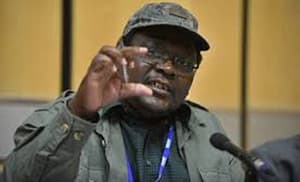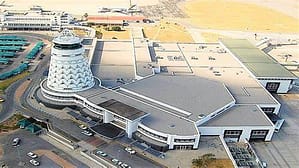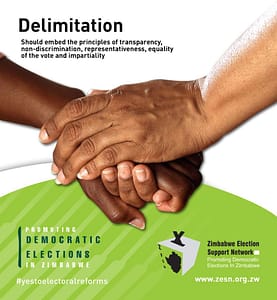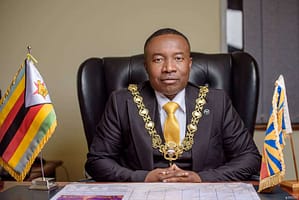Chamisa is misreading people’s mood
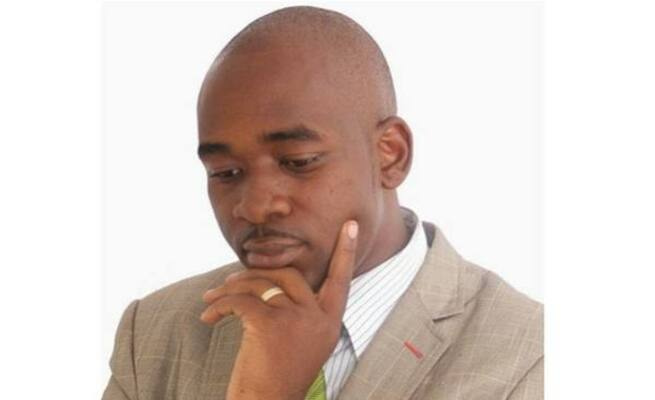
CCC leader Nelson Chamisa
By Alex Magaisa
The first installment of the BSR this week focused on the contentious issue regarding the name of the MDC Alliance, the party led by Nelson Chamisa. It explained the concept of sunk cost fallacy as an aid in deciding whether to continue or abandon a course of action. This installment examines the issue of by-elections which is also topical. Although most people are familiar with the circumstances, I start with an explanation of how the vacancies necessitating the forthcoming by-elections arose.
How the by-elections arose
By law, a by-election is supposed to be held within 90 days after a vacancy has arisen in a parliamentary constituency. A vacancy arises whenever an MP loses his seat on any of the grounds that are listed in the Constitution. Some of the vacancies arose because of the death of an MP. The majority arose from the removal of MPs by a political party claiming that they had ceased to be their member. This is often referred to as a recall by the party.
Most of the vacancies arose from the recall of MPs by the MDC-T led by Douglas Mwonzora following a split that pitted the MDC Alliance led by Nelson Chamisa and an MDC-T led first by Khupe and later by Mwonzora. Although these MPs had been elected under the ticket of the MDC Alliance, Mwonzora claimed that they were members of the MDC-T, one of the parties that constituted the MDC Alliance. He argued that it was the MDC-T, not the MDC Alliance that had title over the MPs and could therefore recall them. This argument was accepted by parliamentary authorities.
This opened the door to a vindictive purge of MPs who maintained allegiance to Nelson Chamisa and the MDC Alliance and refused to recognize Mwonzora as their leader. It was a mass purge that also extended to councillors in local authorities across the country. Mwonzora was using his newfound powers to demonstrate that he was the boss.
The vacancies should have been filled through by-elections within 90 days as required by law. However, all electoral activities were suspended because of the national lockdown imposed during the coronavirus pandemic. The government deliberately took its time, even though other countries were holding elections during the pandemic. The delays in holding by-elections frustrated citizens who remained unrepresented for nearly two years. It also frustrated MPs and councillors who were dubiously removed from their positions.
Now, however, less than 24 months before the next general elections, the government has called by-elections to be held on 26 March 2022. The nomination court where candidates will register to contest the by-elections is set for 26 January 2022.
No boycott without leverage
Although there have been a few voices raising the issue of the MDC Alliance boycotting the by-election, this would be ill-advised. Election boycotts only work when the boycotting party has leverage. The type of leverage that works is where a boycott is likely to delegitimize the election. Without leverage, election boycotts are a waste of time.
A good example of a situation where the boycotting party had leverage is the presidential run-off election in 2008. Morgan Tsvangirai had just defeated Robert Mugabe in the 29 March 2008 election. Mugabe was desperate to defeat Tsvangirai in the run-off election. He needed him as a contestant in the race. But he also unleashed egregious violence on Tsvangirai’s supporters which left more than 200 people dead and thousands more tortured, raped, displaced, and homeless.
With a victory in hand and evidence of electoral violence for the whole world to see, Tsvangirai could afford to register his disapproval by boycotting the run-off election, which he duly did a few days before the election date. Mugabe was left to run alone. It was so embarrassing that when he went to Egypt for an African Union Summit where he expected to be embraced, he was shunned by his peers. Faced with clear isolation. Mugabe had no choice but to negotiate a power-sharing arrangement with Tsvangirai.
Six years later, Tsvangirai led another election boycott, but on that occasion, the boycott did not produce any result because there was no leverage. The MDC-T had removed some of its MPs from parliament leading to vacancies that needed to be filled through by-elections. However, instead of fielding candidates to defend its seats, most of which were in safe constituencies, the MDC-T chose to boycott the by-elections. At the time, it was advocating for electoral reforms and its mantra was that there should be no elections without electoral reforms. With none of the serious opposition parties fielding candidates, ZANU PF’s candidates have an easy run, taking urban seats that they had never won since the 2000 elections. By causing vacancies and then letting ZANU PF candidates take seats in its traditional strongholds, the MDC-T had burned the house to chase a rat.
That it was a political misstep is not in doubt, especially to MDC Alliance candidates who would later context for those seats in 2018. Letting in ZANU PF candidates had allowed them to create a footprint in the constituencies, building a following. MDC Alliance candidates had to work extra hard to persuade citizens who had become accustomed to ZANU PF MPs and their freebies. Statistical data from the 2018 elections shows that ZANU PF candidates in those constituencies increased from the previous elections. They had made gains because they had been allowed an opportunity to lead because of the boycott by the MDC-T. This is an important downside of boycotting elections: if you boycott, someone will get in and build their base.
Citizens’ Frustration
The by-elections are important because they represent an important moment for citizens to participate in a process from which they have been excluded for 2 years. Citizens who elected MDC Alliance MPs and councillors were left confused, powerless, and frustrated when they saw their elected representatives being ejected from parliament and councils by Mwonzora and his allies. They were never consulted over the removals. They could not understand how representatives they had elected under the MDC Alliance could be removed by another party. To add salt to the gaping wounds, they saw individuals that they had rejected at the 2018 general elections, such Thokozani Khupe, returning to parliament as proportional representation MPs in place of their representatives.
Citizens saw all attempts by the MDC Alliance party to get redress through the courts failing. They thought it was unfair but there was nothing they could do about it during the national lockdown. It became plain that they would never get any respite through the judicial system. Things got worse when they saw their party losing its headquarters, and its public funding to which it was entitled based on its performance at the 2018 elections. There was only one space in which they could express themselves: the by-election. Yet even there, they found themselves emasculated because of the indefinite suspension of by-elections. These by-elections are a key opportunity for citizens to be heard. Depriving them of the opportunity to express their disapproval of what happened in the last couple of years would be a betrayal.
Kiss of death
The irony is that what was an advantage for Mwonzora during the lockdown is now an albatross in the by-elections. It is the support, both implicit and explicit, that he got from the ZANU PF regime in the fight against Chamisa and the MDC Alliance that got him unjust rewards. This enabled him to remove MPs and councillors who were elected under the MDC Alliance ticket and to occupy the party headquarters. It also enabled him to get exclusive access to and control of political party funding from the state under the Political Parties (Financing) Act.
While this backing by the regime may have helped Mwonzora, it also cast him as a surrogate of the regime and its enabler. Opposition supporters do not trust anyone who is supported by the regime. They know that ZANU PF never gives an inch to the opposition and when it does so, it is because it sees an advantage to be gained. In this case, Mwonzora’s party is seen as an instrument that is being used by ZANU PF to destroy the authentic opposition led by Chamisa. ZANU PF’s genial treatment of Mwonzora and its contrasting hostility towards Chamisa makes it easy for opposition supporters to distinguish between the two men. ZANU PF’s open embrace of Mwonzora is a kiss of death in political terms. The more ZANU PF openly shows its support for Mwonzora, the more his political stock diminishes in the public estimation.
The purposeful spoiler
But Mwonzora is not unaware of the parlous nature of his political standing in the eyes of the citizens. He is content to play the role of spoiler in respect of his erstwhile allies’ electoral ambitions against Emmerson Mnangagwa. That is why he and his party have become more of an opposition to Chamisa and the MDC Alliance than to Mnangagwa and the ZANU PF regime.
The spoiler role also explains the contradiction of having removed MPs from parliament because they joined the MDC Alliance but now claiming to be the MDC Alliance to contest the by-elections to fill the same seats. Just 4 years ago Mwonzora was telling the world that the MDC Alliance was a political party. Then he turned to say the MDC Alliance was not a political party. Now, however, he claims that his party is the MDC Alliance.
Such blatant contradictions betray a high level of dishonesty which is more likely to draw the wrath of the voting public. It has become clear to most observers that for Mwonzora and his team, their principal objective is not to challenge and displace ZANU PF from power but to frustrate Chamisa and his party while finding accommodation in the regime’s gravy train. Citizens are desperate for a chance to show their disapproval and the by-elections provide an avenue for this political expression.
Battle for legitimacy
The fact that most of the parliamentary vacancies are in the opposition’s urban strongholds means that ZANU PF has little to lose, and the election is largely a battle for supremacy between the two opposition leaders and their parties. The Chamisa-led party will want to retain the seats that it lost to the dubious and unjust recalls by Mwonzora. At the other extreme, the Mwonzora-led party wants to win those seats as confirmation of its status as a legitimate political party that draws its authority from the people.
Maintaining MDC A brand will cost Chamisa heavily
So far, Mwonzora’s political legitimacy is extremely weak because he has never led a party in an election, and he has no direct authority from the people. This is why the purported dialogue with Mnangagwa is vacuous and embarrassing since he has no political authority from the citizens. All the MPs and councillors that he claims were won by Chamisa and the MDC Alliance before he appropriated them on a legal technicality. The by-election is his first opportunity to demonstrate his political mettle. If the MDC Alliance blinks and lets him have an easy ride, they will have given him the one thing that he desperately craves.
The mindset of the leadership and the party must be centered around regaining what was stolen from them and demonstrating that they are the only viable and legitimate alternative.
ZANU PF will be keen to retain seats in its traditional strongholds in the rural areas. However, it will also be keen to claim some scalps in the opposition’s traditional power bases and at the very minimum to increase its share of the vote. Winning any urban seats or wards would be seen as a great victory because ZANU PF has fared poorly in those constituencies since the emergence of the MDC as a political force in the 2000s. It will be used to drive a narrative of ZANU PF’s ascendancy in the run-up to the key general elections in 2023. It will hope for a split in the opposition’s votes, especially in the constituencies where the MDC Alliance’s margin of victory in the 2018 elections was small. In this regard, it will hope to exploit any confusion over the names of its rivals, a reason why ZEC might allow both Mwonzora and Chamisa to use the MDC Alliance label. This is another reason why having a distinct name and label is essential for Chamisa and his party.
Threat lies within
The biggest threat to Chamisa and the MDC Alliance in these by-elections is itself if it does not take them seriously. The leaders must not misread the public mood. People have a big bone to chew with Mwonzora, his party, and ZANU PF which has supported them in their quest to destroy the opposition. The mindset of the leadership and the party must be centered around regaining what was stolen from them and demonstrating that they are the only viable and legitimate alternative. It is one thing saying it, but a completely different thing demonstrating it in the political marketplace. The by-elections present the opportunity to demonstrate it.
A successful election demands the leadership to fully invest their hearts and minds into it. It is easy to misconstrue by-elections as a minor event that affects just the parliamentary and local authority candidates. Every by-election affects the party leadership. When citizens go to vote, they are not merely voting for the individual candidate. They are also voting for the political party that they represent and by implication, the leadership of the party. A vote for the candidate is a show of confidence in the party and its leadership. Likewise, a candidate’s defeat reflects poorly on the party and its leadership. For this reason, the leadership of the parties must take by-elections seriously because the outcome will affect their political standing.
Opportunity for reform advocacy
There is an argument that this set of by-elections is a pointless waste of resources considering that there is a general election scheduled for next year. While the argument has some merit, it is also true that by-elections are required by law. The fact that they were inordinately delayed is due to a combination of the pandemic and political gamesmanship by the regime. However, a wise political operator strives to make a profit out of adversity. He or she must not always think the worst of a situation and succumb to it as a victim. If ZANU PF is using the by-election for its political machinations, there is no reason why the MDC Alliance must not take advantage of the same by-elections to further its ends.
For example, the by-elections present an opportunity to re-build advocacy for electoral reforms. There is no other way to demonstrate and highlight weaknesses of the electoral process than through the practice of elections. Already the conduct of ZEC regarding voter registration is a major point of reform advocacy and there is evidence to show that there are serious weaknesses that may impact the 2023 elections. Election rigging is a process that starts well before polling day and the by-elections are a good opportunity to re-emphasize the irregularities.
In addition, by-elections offer opportunities for campaigning and building election-preparedness. ZANU PF is always campaigning across the country through the activities of the government. Once elections are declared, candidates have the freedom to campaign. The opposition can make good use of the campaign opportunities offered as they build up to 2023. The idea that you wait until 2023 to carry out a campaign is outdated. Political campaigning is a continuous process. This can be combined with voter registration campaign. Training polling agents, implementing anti-rigging strategies in preparation for 2023 – are opportunities that by-elections present. If the road leading up to the by-elections is used effectively to mobilize and prepare for 2023, it will not be the pointless waste of resources that some people are making it out to be. In an authoritarian environment, a glass is half-full mentality is better than a glass is half-empty approach.
Conclusion
The by-elections may be inconvenient, but they are an important moment in the journey towards the 2023 elections. It’s easy to moan at the machinations of an authoritarian regime, but this is what they do. The challenge is to work around them by anticipating their strategies and countering them. If ZANU PF thinks it will draw advantages from the by-elections, the opposition must work to draw their own advantages in return. ZANU PF will not change, the opposition must continue to knock the wall, one day it will fall. Boycotts or running as a loose and disparate am of independents are not wise strategies. You have to demonstrate confidence by running as a solid, and distinct entity. The candidates showed loyalty when they stood with their leader and party during the purge. Now their leader must help his lieutenants and the party as they reclaim what was stolen from them.
—Alex Magaisa is a law lecturer at Kent University in UK
